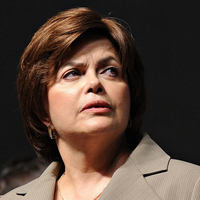When Brazilian voters went to the polls last year, they voted for continuity. In electing Dilma Rousseff, a 63-year-old technocrat who had never run for office before, they responded to the pleas of their popular outgoing president, Luiz Inácio Lula da Silva. Lula, as he is known, had made his preference clear. "A vote for Dilma is a vote for me," he told them, with both leaders promising that she would continue moving Brazil down the same path.
When it comes to foreign policy, Dilma, as Brazilians call their new president, has also said she will follow her predecessor's line. And yet, in the short time since her election and the even shorter time since taking office, a number of important clues have emerged about how Brazil's foreign policy will change in the coming years.
Under the presidency of the charismatic Lula, Brazil sharply raised its international profile, becoming a force in the global debate over major issues, including trade and climate change. Brazil, aspiring to a permanent seat in the United Nations Security Council, became a much more active player in regional affairs, occasionally upsetting its neighbors, but undoubtedly increasing its influence.

